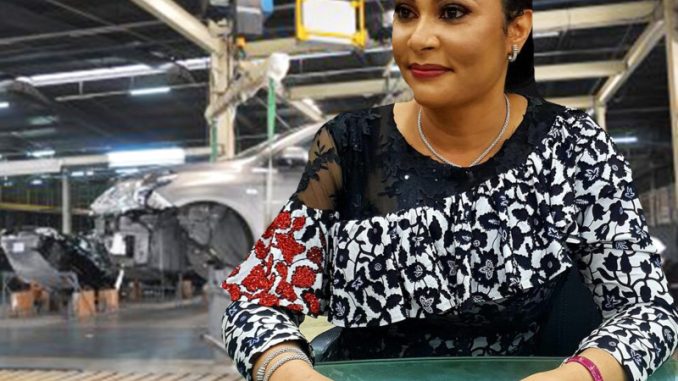
The Nigerian Minister of Industry, Trade, and Investment, Doris Uzoka-Anite, has announced plans to position Nigeria as a major player in the vehicle manufacturing industry. During the launch of the Nigeria Automotive Industry Development Plan, the minister stated that Nigeria has the necessary raw materials, skills, and market to produce its own vehicles, including motorcycles, tricycles, sedans, and heavy-duty trucks. The goal is to make Nigeria a fully-fledged vehicle manufacturer within the next 10 years and reduce the cost of purchasing a vehicle for the average Nigerian.
To support the plan, the Director-General of the National Automotive Design and Development Council, Joseph Osanipin, proposed a five-year tax holiday for vehicle assemblers in Nigeria. This fiscal initiative aims to encourage backward integration and component production in the automotive industry.
The implementation committee responsible for the Automotive Industry Development Plan includes representatives from the Ministries of Finance, Transport, and Environment, as well as the industry, trade, and investment sectors. It also involves organizations such as the Nigeria Customs Service, the Manufacturers Association of Nigeria, and the Standards Organisation of Nigeria.
While launching the Nigeria Automotive Industry Development Plan on Friday, the minister stated that the automotive industry development plan was drawn to position Nigeria as a fully-fledged vehicle manufacturer within the next 10 years.
During the gathering attended by stakeholders drawn from the private and public sectors, Doris Uzoka-Anite said “Nigeria has the capacity to produce its own vehicles. We have the raw materials; we have the skills; we have a market, and now we have a plan that can help us produce our vehicles. These vehicles include motorcycles, tricycles, sedans, heavy-duty trucks.
“With this plan, we should see Nigeria fully producing its own vehicles within 10 years. Our goal is to reduce the cost of purchasing a vehicle for the average Nigerian.”
On his part, the Director-General of the National Automotive Design and Development Council, Joseph Osanipin stated that the policy proposed to help actualise the plan was a five-year tax holiday for assemblers of vehicles in Nigeria.
He said, “Through such fiscal initiatives, there is a deliberate focus on backward integration and component production.”
Members of the Automotive Industry Development Plan implementation committee are drawn from the Ministries of Finance, Transport, and Environment as well as Industry, Trade and Investment.
It also comprises the Nigeria Customs Service, the Manufacturers Association of Nigeria, and the Standards Organisation of Nigeria.
Last year, Nigeria’s vehicle assembling industry, estimated to be worth around N302bn, tanked to a new low due to increasing production costs and weakened demand for locally assembled automobiles.
According to the Manufacturers CEOs Confidence Index, activities of motor vehicles and miscellaneous assembly deteriorated further below the benchmark (50 points) from 48.6 to 46.7 points.
For example, in the second quarter of 2023, players in the sector saw production and distribution costs soar by 17.3 per cent, while cost of shipments increased by 14.7 per cent.
Capacity utilisation in the sector dropped by 5.6 per cent, forcing local assemblers to cut their workforce by 5.7 per cent during the period.
Prior to 2014, when a policy for the automobile industry was released, giving license for automobile dealerships in Nigeria, the importation of used cars had threatened to wipe up the gains of partnerships forged by the Nigerian governments with foreign car manufacturers in the 1970s
The Federal Government’s Automotive Policy of 2014 is geared towards providing a framework that would support automobile companies to boost local content and establish a vehicle financing scheme that would provide funds for citizens to buy new cars.
However, despite the policy, the government’s refusal to patronise locally manufactured vehicles, coupled with poor regulations, has constituted an albatross on the neck of the industry.
Currently, Nigeria produces less than 10 percent of the vehicles used in the country.

